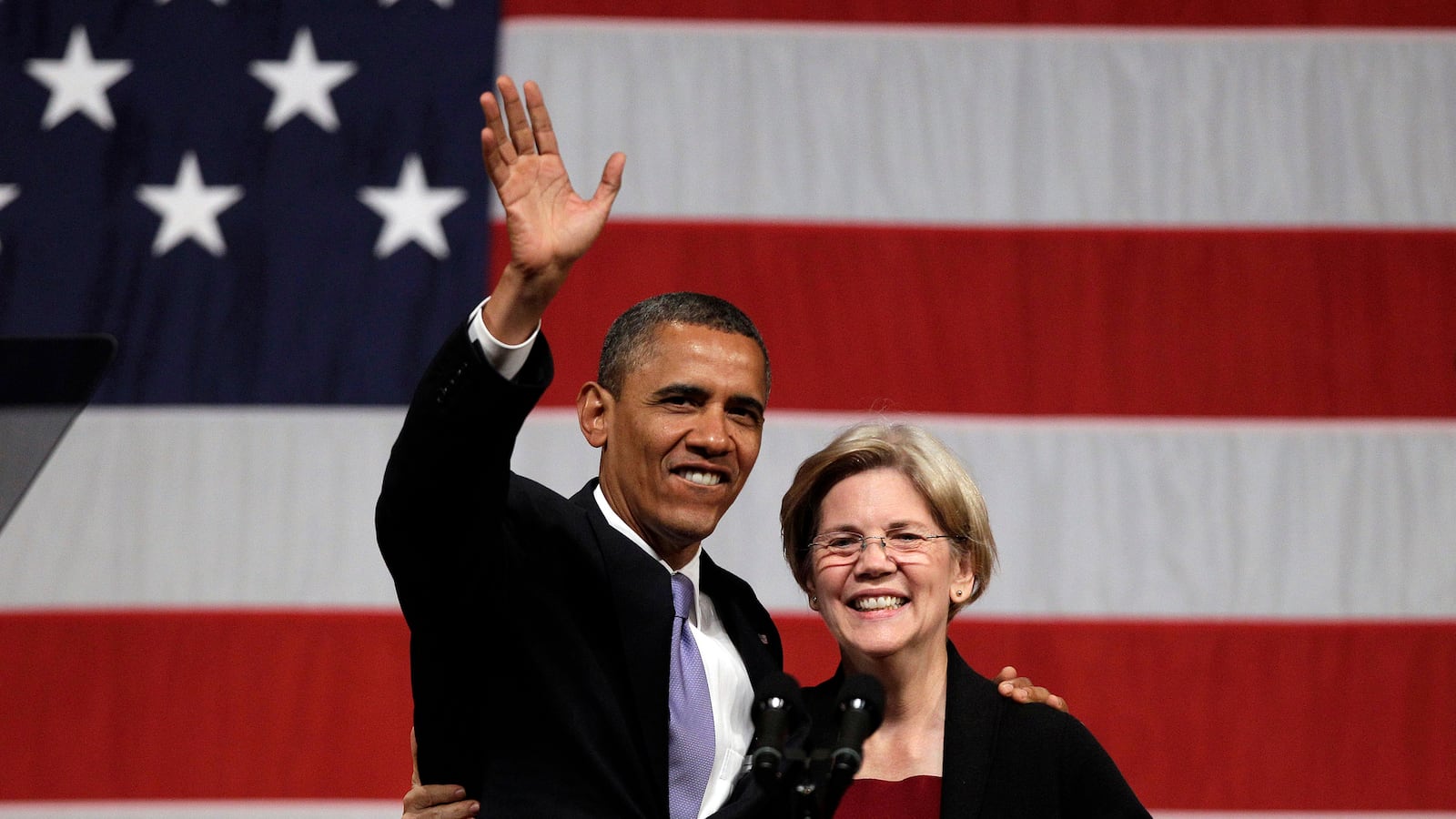Is 2014 going to be the year that Barack Obama tacks—and stays—left?

He’s given big economic populism speeches before, but he has tended to raise the subject and then just quietly let it disappear for a few months at a time. Things feel a little different this time. I’d love to see Obama emphasize inequality, but there are good and bad ways to do it, both substantively and politically, and rather than take sides in an acrimonious debate that’s divided liberals and centrists for a couple of decades now, Obama ought to try to find a rhetoric and a set of ideas that both sides can make peace with. He needs to identify what we might call a Fourth Way.
First of all, it’s great that the White House pledges that Obama is going to be focused on issues like raising the minimum wage and extending unemployment insurance (and, of course, getting Americans health care). The median wage, as Center for American Progress CEO Neera Tanden pointed out, has fallen nearly 10 percent since 2000, from $56,000 to just under $51,500. The slow recovery and the prevalence of lower-wage jobs for people who have found work aren’t felt by the elites, but they’re felt all across the country by millions. Meanwhile, corporate profit hoarding is at record levels.
Liberals are aching to see a Democratic president really tackle these issues in an aggressive way. That desire helps to explain Sen. Elizabeth Warren’s rock-star popularity, along with her plain-spoken charisma, the way she sometimes has of saying in two blunt sentences the things that progressives have been desperate for years to hear a leading politician say. In nearly every other Democratic pol, Obama usually included, there’s a hedging you can hear in the words or voice when he speaks of inequality, a care being taken not to get too far out there and rile up the overclass. Not so with Warren. She lets it rip.
Warren is the lead singer in a growing chorus of people on the broad left who want to put inequality at the center of the political debate. The main argument is simple enough: fairness. After this 30-year party for the 1 percent, it’s high time we made policies geared toward the middle and lower incomes.
This is certainly morally true. But politically I don’t think fairness is enough. Average Americans care about fairness, but not really all that much. People who have incomes comfortably above the median but who still aren’t rich are going to suspect that fairness means something is coming out of their hide. What they do care about, though, is growth. Everybody from Bill Gates to his janitor wants the economy to grow. So the case for these programs that Obama needs to make consistently going forward is not the case for their fairness, but the case that these policies, and not tax cuts for the wealthy or more draconian domestic budget cuts or less regulation, will promote growth.
Is this case empirically provable? So far, mostly in the negative sense. That is, we know the alternatives are failures. We know trickle-down doesn’t work (aside from three decades of no proof, we now have the added bonus that even the only infallible man on earth has said so, and forcefully). We also know from numerous economic studies that have been produced in the last three years of budget-cutting that it doesn’t promote growth, either; in fact the whole economy lags and sags when the public-sector portion of it is axed gratuitously (for example, the numerous studies showing that if government payrolls hadn’t been slashed so mercilessly, the jobless rate would now be under 7 percent). As for less regulation, that’s what drove the mortgage derivative madness in the first place.
We don’t really know how much attacking inequality promotes growth. But we do know that the promotion of policies that increase inequality haven’t done much for growth, either. George W. Bush’s economic policies did a lot to promote inequality, and his growth numbers are among the worst of any modern president (Obama passed Bush’s eight-year jobs total last April). So politically, it really shouldn’t be that hard for Obama and other Democrats to make the case that a more populist and public-investment based agenda can lead to better growth.
This kind of framing could unify, to some extent anyway, the Democratic left and center. One of their key divides is over whether fairness can and should be the basis of an economic program. Going back to the 1990s, it’s always been fairness vs. growth. But I don’t see any reason at this stage of the game why the two can’t get married, and rather than fighting among themselves, the two wings of the Democratic Party can say “a fairer economy promotes growth” and put the onus on Republicans and conservatives to disprove it.
A number of differences between center and left will never be papered over. Entitlements are one such area—the centrists want to make a deal, and the liberals don’t. There is no basis for compromise on that one. Obama will throw in with one side or the other (although which one, who knows; one of the beneficial impacts of GOP recalcitrance has been that it’s prevented the consummation of a grand bargain in which Obama agreed to a cut in Social Security benefits). How much a priority to make of deficit reduction is another.
But on the fairness/growth question, a middle ground should and does exist. What leaders do is to find that middle ground and bring everyone to it. This is what Obama needs to spend the next three years doing. It can be a move to the left, but a unifying rather than a confrontational one.






